CEG
The Centre for Global Studies
“The universal is the local without walls”
(Miguel Torga)
The Centre for Global Studies at Universidade Aberta (CEG-UAb) aims to make a decisive contribution, in Portugal and in Portuguese-speaking countries, to the scientific field of “Global Studies”. This is a fertile and emerging area of study, with multidisciplinary and interdisciplinary roots, which, through a transnational and transcultural approach that brings together the local and the global, aims to address the complexity of macro-processes that involve and define humanity as a whole.
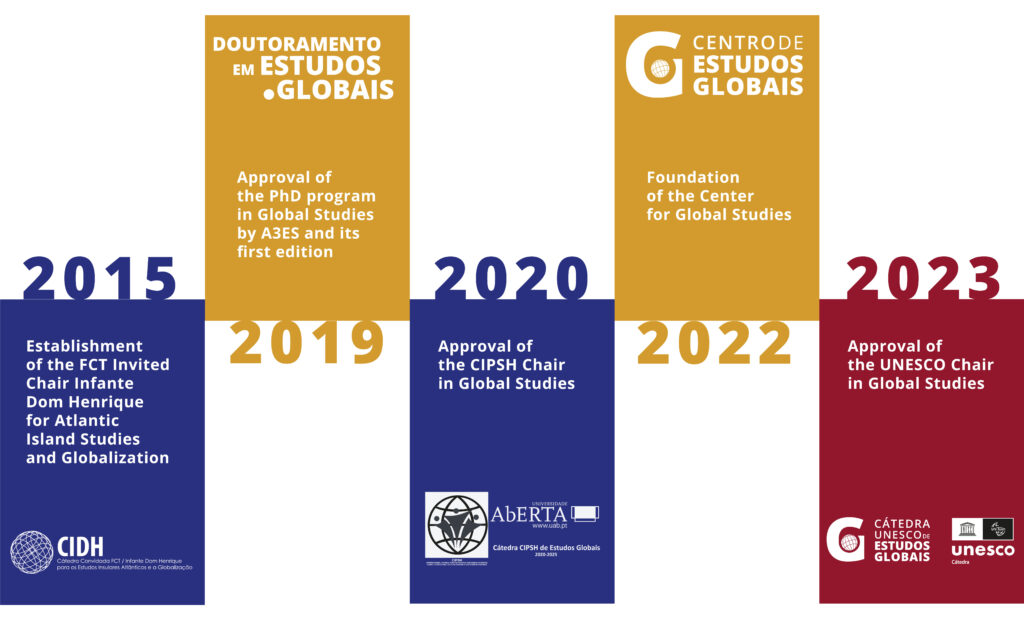
CEG-UAb was founded as a result of the research work carried out since 2015 under the FCT Infante D. Henrique Visiting Chair in Atlantic Island Studies and Globalization, which was later continued in the form of the CIPSH Chair in Global Studies and reinforced with the approval, in 2023, of the UNESCO Chair in Global Studies. The approval in 2019 by A3ES of the PhD in Global Studies was decisive in raising awareness of the need to create a research unit that would accommodate and promote the research produced in the epistemological field of Global Studies by the students of the program. For this reason, the training component for young researchers is a core element of CEG-UAb, which, since its foundation, it has sought to strengthen through cooperation with the doctoral programs in Social Sustainability and Development, Intercultural Relations and the master’s degree in Entrepreneurship and Global Citizenship.
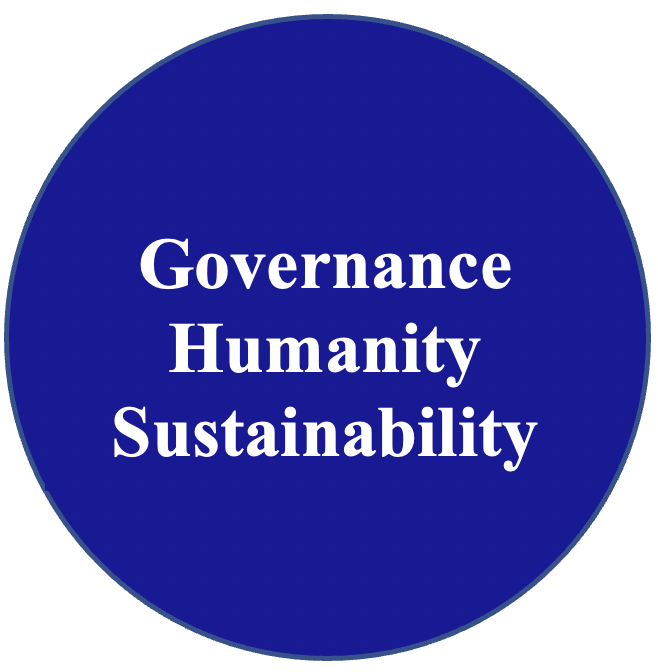
In keeping with the spirit and dynamics of its time, CEG-UAb has adopted “Governance, Humanity and Sustainability” as its ideals and, in the light of these operative concepts, its values include a strong commitment to respecting human rights and the freedom of peoples; to combating imbalances, inequalities and violence; and to promoting more sustainable cultural, educational, social, political, economic, artistic and environmental development.
Within the framework of its values, CEG-UAb’s mission is to stimulate and consolidate applied and innovative research that actively contributes to a developing understanding of global processes, structures and dynamics; to generate debate, knowledge, critical thinking and the capacity for effective intervention; to structure and support public policies and the democratic participation of citizens; and to foster positive changes that will help mitigate the deregulatory impacts of globalization.
Since its creation in 2022, CEG-UAb has developed and/or launched a series of activities and projects that demonstrate the vitality of this research unit, through the establishment of a broad and comprehensive network of national and international experts and researchers in advanced training; the promotion of partnerships, as well as contact and research networks, involving national and international institutions; the development of academic and scientific research projects; the application to national and international funding programs; the committment to disseminating and publishing the results and outputs of academic and scientific research; and the promotion of academic meetings, events, and training activities aimed at all audiences.
| Integrated Researchers | Collaborator Researchers | PhD Students |
| 107 | 243 | 54 |
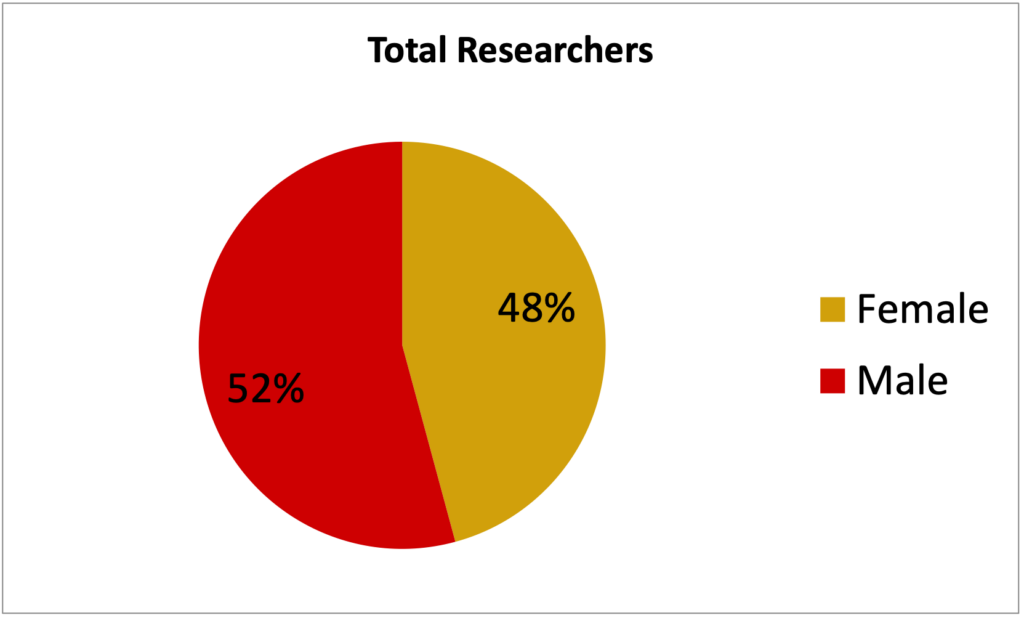
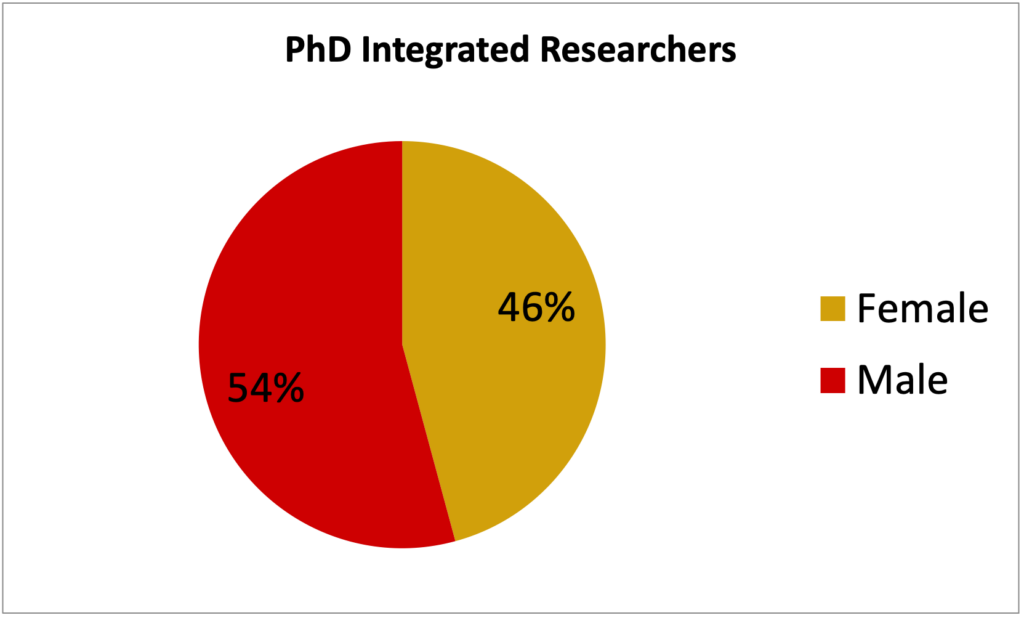
The Centre for Global Studies (CEG) is internally organized into seven Research Groups (RGs) which cover the main disciplinary axes of its members. Five Thematic Lines (TLs), each with its own internal coordination, articulate in horizontal cooperation with the different groups, so as to ensure that the objectives of the Centre and of the interdisciplinary research projects are met. The CEG-UAb structure also includes two laboratories to support the RGs and TLs and four international research networks with which it is associated. Also in close, complementary articulation with the Center for Global Studies are the CIPSH Chair in Global Studies and the UNESCO Chair in Global Studies. All these forces will work together in concentric fashion to develop and promote initiatives that correspond to CEG-UAb’s values and mission.
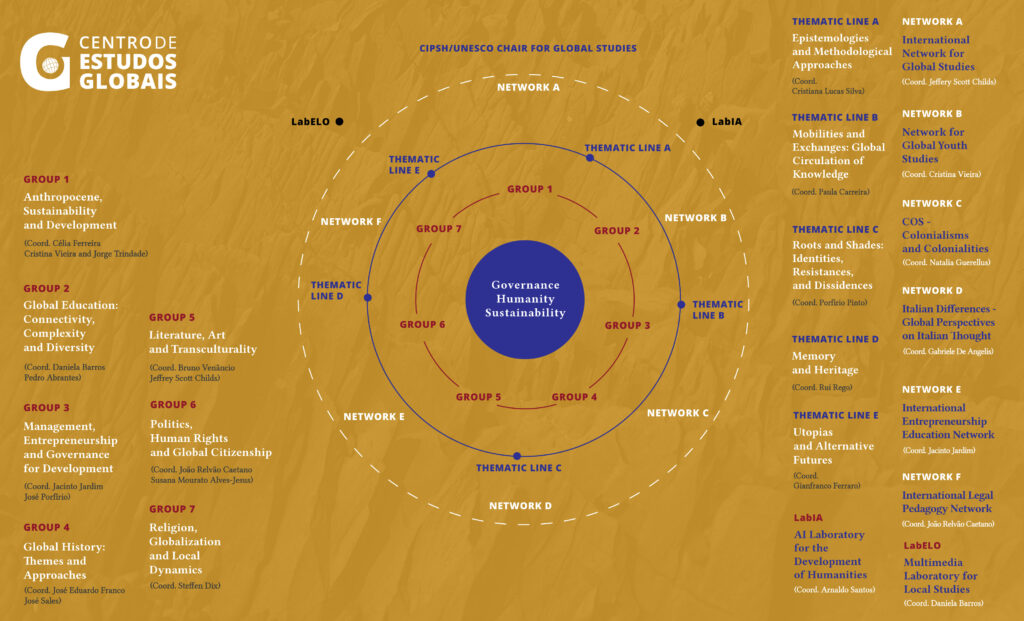
General Objectives
- To deepen, broaden and systematize knowledge about the phenomenon of globalization, articulating political, economic, social, cultural and educational dynamics in local, national and international contexts.
- To critically reflect on global issues according to innovative epistemological perspectives, contributing to determine the role of societies and people in the globalization process.
- To identify research needs in Global Studies and disseminate the research produced to peers and the wider community.
- To implement appropriate research methodologies and actions that contribute to the resolution of global problems.
- To develop interdisciplinary concepts, perspectives and discourses about global identity processes on history, religions, culture, politics, law, society, education, economy and environment.
- To contribute with research and reflection to guide public policies in various fields (e.g. educational, economic, social, cultural, linguistic and environmental policies).
- To innovate towards improving people’s living conditions by creating sustainable relations between culture, economy, society and environment, in a global perspective.
- To promote the articulation of the research objectives from the different doctoral programs at the UAb, from a collaborative and interdisciplinary perspective, as well as the construction of global research networks, aiming at the development of theoretical-methodological models that are adequate to the different contexts and supporting research in contexts where it is particularly difficult or scarce.
- To promote advanced training actions that prepare staff to deal with the issues, problems and alternatives associated with the globalization process, creating critical knowledge and the capacity to intervene in the construction of a sustainable global society from a socio-cultural and ecological point of view.
- To promote projects that link the local and the global, with respect for human rights and sustainable development, throughout the world.
Major Issues/Problems
CEG-UAb will guide its research work according to problems and challenges that are in the process of identification and deepening at all times by its body of researchers, namely:
- How to construct the history of communities, peoples and countries in order to assume a critical knowledge of the past according to an integrative perspective of human interactions in an open logic, breaking with the closed circles of revisiting the past and carried out in an interspatial and transtemporal perspective?
- How to study, understand and give an understanding of cultural, literary and artistic heritages and creative dynamics in the present in the light of a global reading key?
- How can we analyse and anticipate individual and social lifestyles to ensure a more sustainable and ecologically and socially balanced future on planet Earth, starting with the city and country where we live?
- How can organisations in general, and business organisations in particular, sustainably promote a society that is more concerned with its future, based on effective universal values, and on the basis of a true purpose oriented towards the common good?
- How can we work legally and politically to build societies and institutions that are open to the world and respect the rule of law?
- How can we devise educational ideas, strategies and methods that contribute to the integral development and fulfilment of individuals, to the recognition and dialogue between cultures, and to the construction of global citizenship?
- How to understand and intervene in truly global phenomena/challenges such as religious, political and social radicalisation, the effects of pandemics, migrations or digitalisation of the economy?